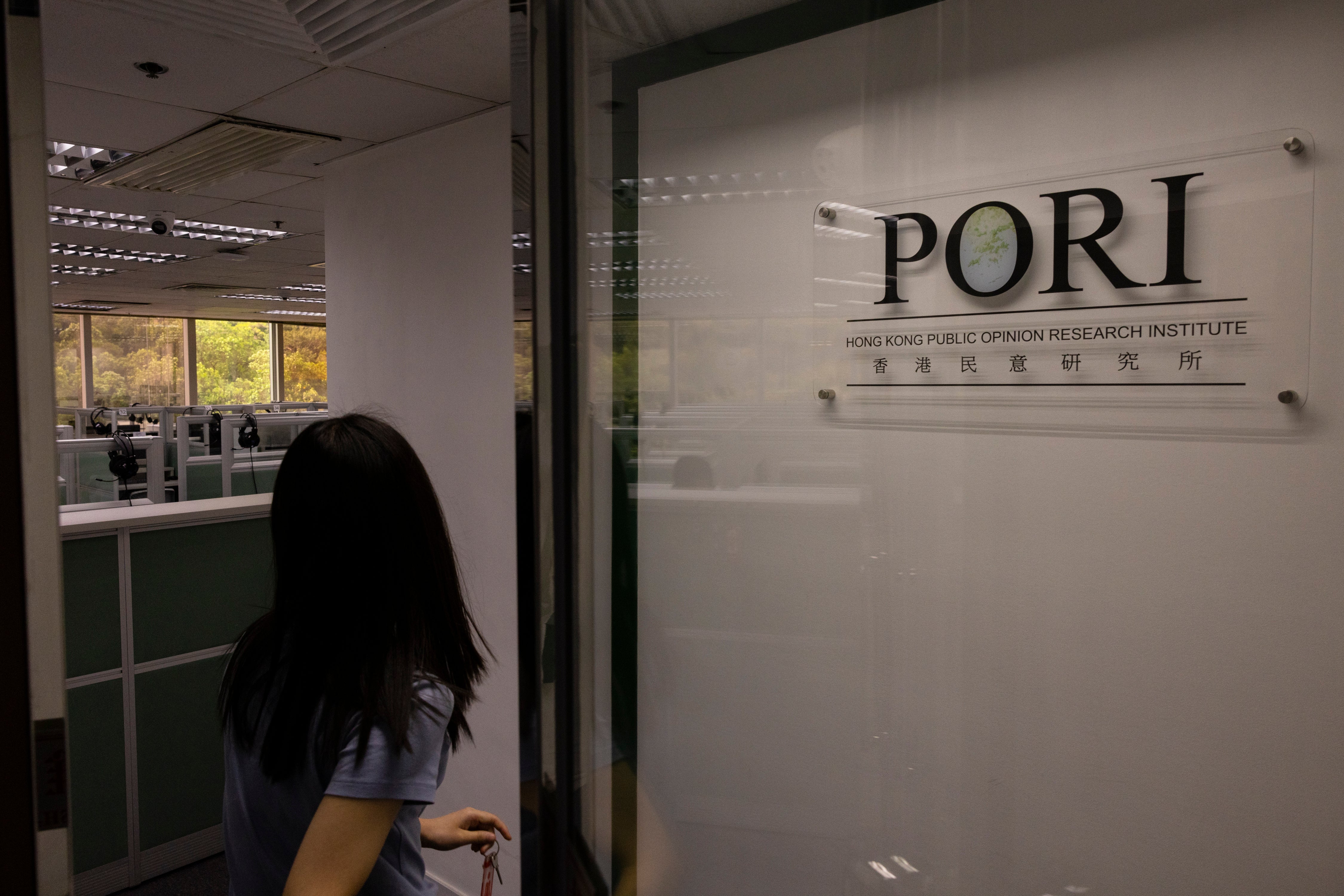Hong Kong pollster plans to limit questions on sensitive topics, including Tiananmen crackdown
One of Hong Kong’s most reputable sources for public opinion data is limiting its survey scope, including on sensitive topics such as the Tiananmen crackdown

Your support helps us to tell the story
From reproductive rights to climate change to Big Tech, The Independent is on the ground when the story is developing. Whether it's investigating the financials of Elon Musk's pro-Trump PAC or producing our latest documentary, 'The A Word', which shines a light on the American women fighting for reproductive rights, we know how important it is to parse out the facts from the messaging.
At such a critical moment in US history, we need reporters on the ground. Your donation allows us to keep sending journalists to speak to both sides of the story.
The Independent is trusted by Americans across the entire political spectrum. And unlike many other quality news outlets, we choose not to lock Americans out of our reporting and analysis with paywalls. We believe quality journalism should be available to everyone, paid for by those who can afford it.
Your support makes all the difference.One of Hong Kong’s most reputable sources for public opinion data is limiting its survey scope, including on sensitive topics such as the Tiananmen crackdown. The change, on the heels of a risk assessment done by the government, would likely muffle access to information showing changes in public sentiment toward the city.
Hong Kong Public Opinion Research Institute announced Tuesday it tentatively decided to cancel about one-fourth of its regular survey questions, and use about one-third of the remaining ones only for internal reference, academic research, and commissioned services, rather than releasing them for public use. The announcement came two weeks after the release of its report about the anniversary of China's crackdown on the 1989 pro-democracy protests was canceled due to the Hong Kong government's risk assessment.
The institute's CEO, Robert Chung, told the Associated Press in an email reply Wednesday that the government's risk evaluation weighed into the decision.
When the institute was reviewing its operation, it also considered various factors including the demand for opinion data, the historical development of Hong Kong society, the role of the pollster in promoting science and democracy, and legal risks, he said. Under the resulting plans, affected topics include the Tiananmen crackdown on June 4, 1989, the city's handover to China's rule in 1997, local disciplinary forces, and ratings of lawmakers. Their final plan will be announced in July.
Critics said the moves would be a great loss to Hong Kong, which was once famed for its freedom of expression.
Hong Kong, a former British colony, returned to China's rule in 1997 and was promised the right to retain its Western-style civil liberties for 50 years after the handover. For decades, the institute has tracked public sentiment on issues including the 1989 crackdown that killed hundreds and possibly thousands of people and how China's central government policy has fared the city.
The institute earlier said it was not told whether the assessment was related to the sweeping national security law, nor did it ask. Neither the government nor the police immediately responded to a request for comment.
In January 2021, when more than 50 pro-democracy activists were arrested on subversion charges in the city's biggest national security crackdown yet, police also raided the office of the institute, which was involved in organizing the voting.
Before he launched the independent institute, Chung was the director of the public opinion program at the University of Hong Kong, the city's oldest university. Over the years, his work has drawn ire from pro-Beijing media outlets and organisations. But the institute continued to ask politically sensitive questions after the enactment of the security law. For example, in previous polls about the Tiananmen crackdown, it asked respondents whether they thought Beijing students and the central government “did the right thing."
Chung Kim-wah, who served as deputy chief executive of the institute before leaving for the United Kingdom, said his former colleagues have been doing public opinion studies for about 30 years — a rarity in the city, and crucial to the study of Hong Kong’s history and social development.
The poll results were also used to provide information to the government so it could respond to the public’s views, and served as indicators of the city’s changes, Chung said.
“This is a very great loss,” he said.